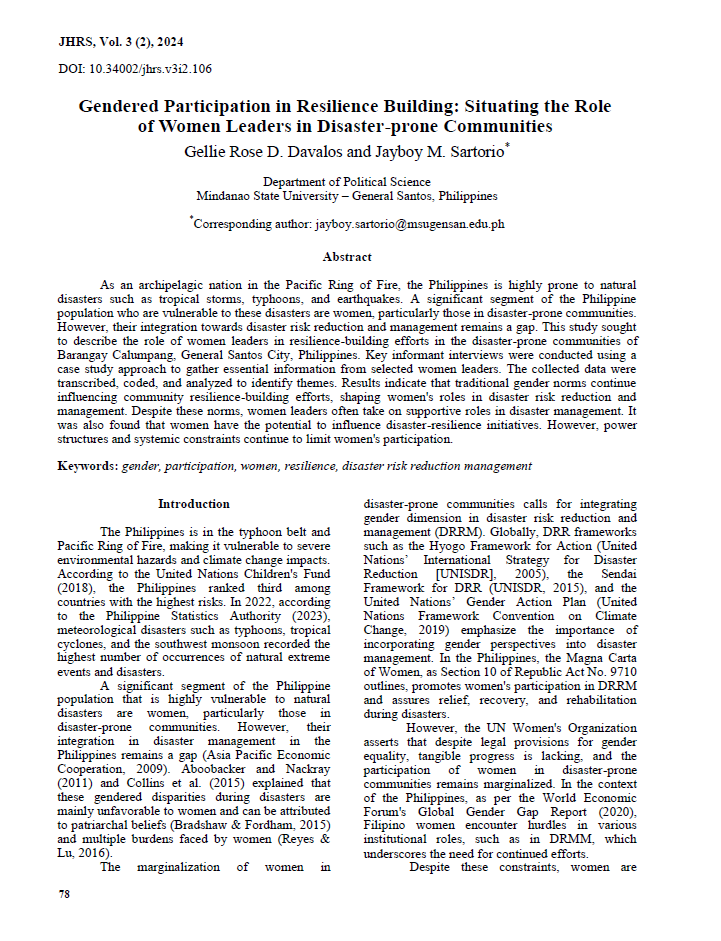Gendered Participation in Resilience Building: Situating the Role of Women Leaders in Disaster-prone Communities
Abstract
As an archipelagic nation in the Pacific Ring of Fire, the Philippines is highly prone to natural disasters such as tropical storms, typhoons, and earthquakes. A significant segment of the Philippine population who are vulnerable to these disasters are women, particularly those in disaster-prone communities. However, their integration towards disaster risk reduction and management remains a gap. This study sought to describe the role of women leaders in resilience-building efforts in the disaster-prone communities of Barangay Calumpang, General Santos City, Philippines. Key informant interviews were conducted using a case study approach to gather essential information from selected women leaders. The collected data were transcribed, coded, and analyzed to identify themes. Results indicate that traditional gender norms continue influencing community resilience-building efforts, shaping women's roles in disaster risk reduction and management. Despite these norms, women leaders often take on supportive roles in disaster management. It was also found that women have the potential to influence disaster-resilience initiatives. However, power structures and systemic constraints continue to limit women's participation.

